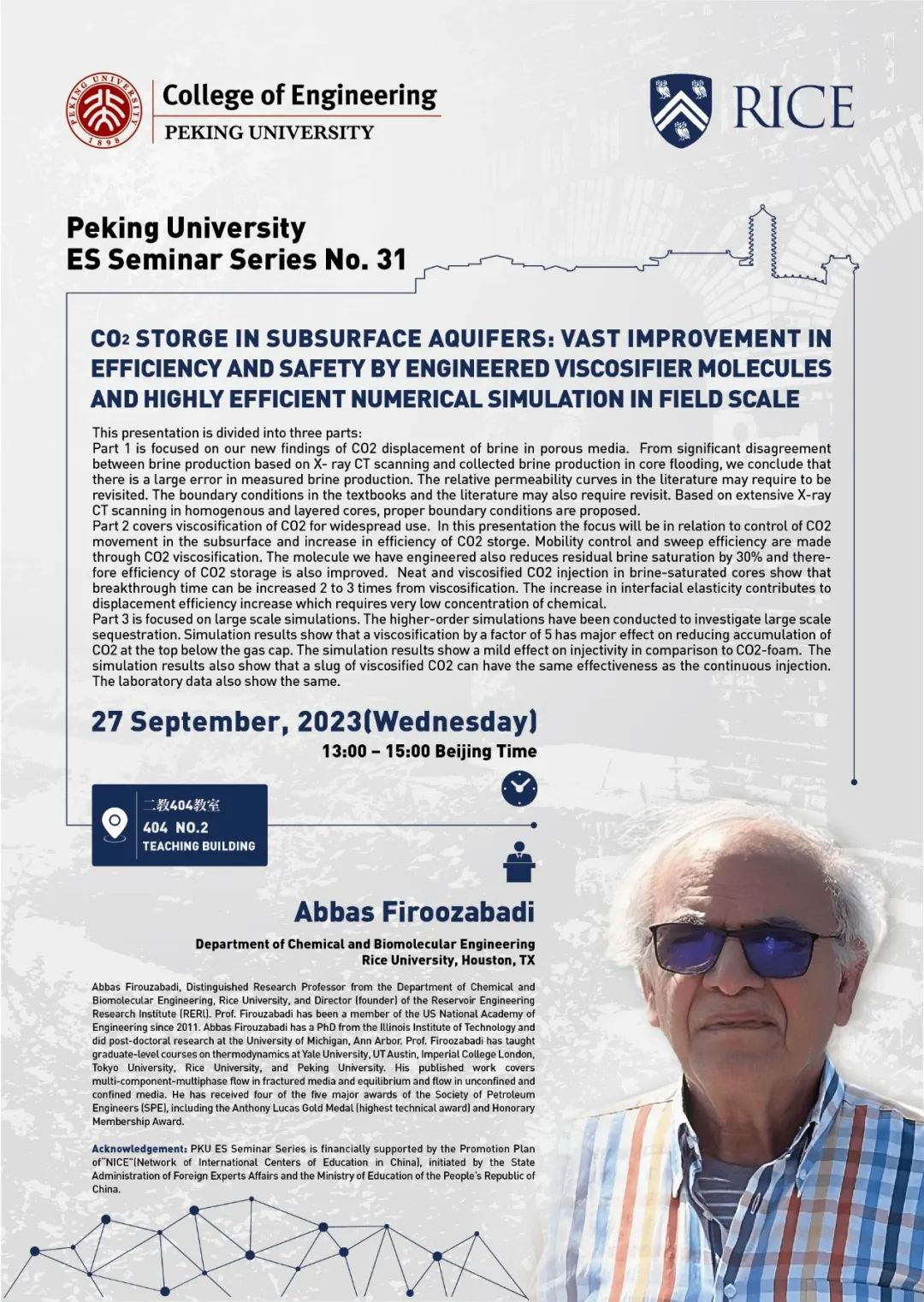Speaker: Abbas Firoozabadi, Department of Chemical and Biomolecular Engineering, Rice University, Houston, TX
Time: 13:00-15:00 p.m., September 27, 2023, GMT+8
Venue: No. 2 Teaching Building, Room 404
Abstract:
This presentation is divided into three parts:
Part 1 is focused on our new findings of CO2 displacement of brine in porous media. From significant disagreement between brine production based on X- ray CT scanning and collected brine production in core flooding, we conclude that there is a large error in measured brine production. The relative permeability curves in the literature may require to be revisited. The boundary conditions in the textbooks and the literature may also require revisit. Based on extensive X-ray CT scanning in homogenous and layered cores, proper boundary conditions are proposed.
Part 2 covers viscosification of CO2 for widespread use. In this presentation the focus will be in relation to control of CO2 movement in the subsurface and increase in efficiency of CO2 storge. Mobility control and sweep efficiency are made through CO2 viscosification. The molecule we have engineered also reduces residual brine saturation by 30% and therefore efficiency of CO2 storage is also improved. Neat and viscosified CO2 injection in brine-saturated cores show that breakthrough time can be increased 2 to 3 times from viscosification. The increase in interfacial elasticity contributes to displacement efficiency increase which requires very low concentration of chemical.
Part 3 is focused on large scale simulations. The higher-order simulations have been conducted to investigate large scale sequestration. Simulation results show that a viscosification by a factor of 5 has major effect on reducing accumulation of CO2 at the top below the gas cap. The simulation results show a mild effect on injectivity in comparison to CO2-foam. The simulation results also show that a slug of viscosified CO2 can have the same effectiveness as the continuous injection. The laboratory data also show the same.
Biography:
Abbas Firouzabadi, Distinguished Research Professor from the Department of Chemical and Biomolecular Engineering, Rice University, and Director (founder) of the Reservoir Engineering Research Institute (RERl). Prof. Firouzabadi has been a member of the US National Academy of Engineering since 2011. Abbas Firouzabadi has a PhD from the Illinois Institute of Technology and did post-doctoral research at the University of Michigan, Ann Arbor. Prof. Firoozabadi has taught graduate-level courses on thermodynamics at Yale University, UT Austin, Imperial College London, Tokyo University, Rice University, and Peking University. His published work covers multi-component-multiphase flow in fractured media and equilibrium and flow in unconfined and confined media. He has received four of the five major awards of the Society of Petroleum Engineers (SPE), including the Anthony Lucas Gold Medal (highest technical award) and Honorary Membership Award.
Source: College of Engineering
